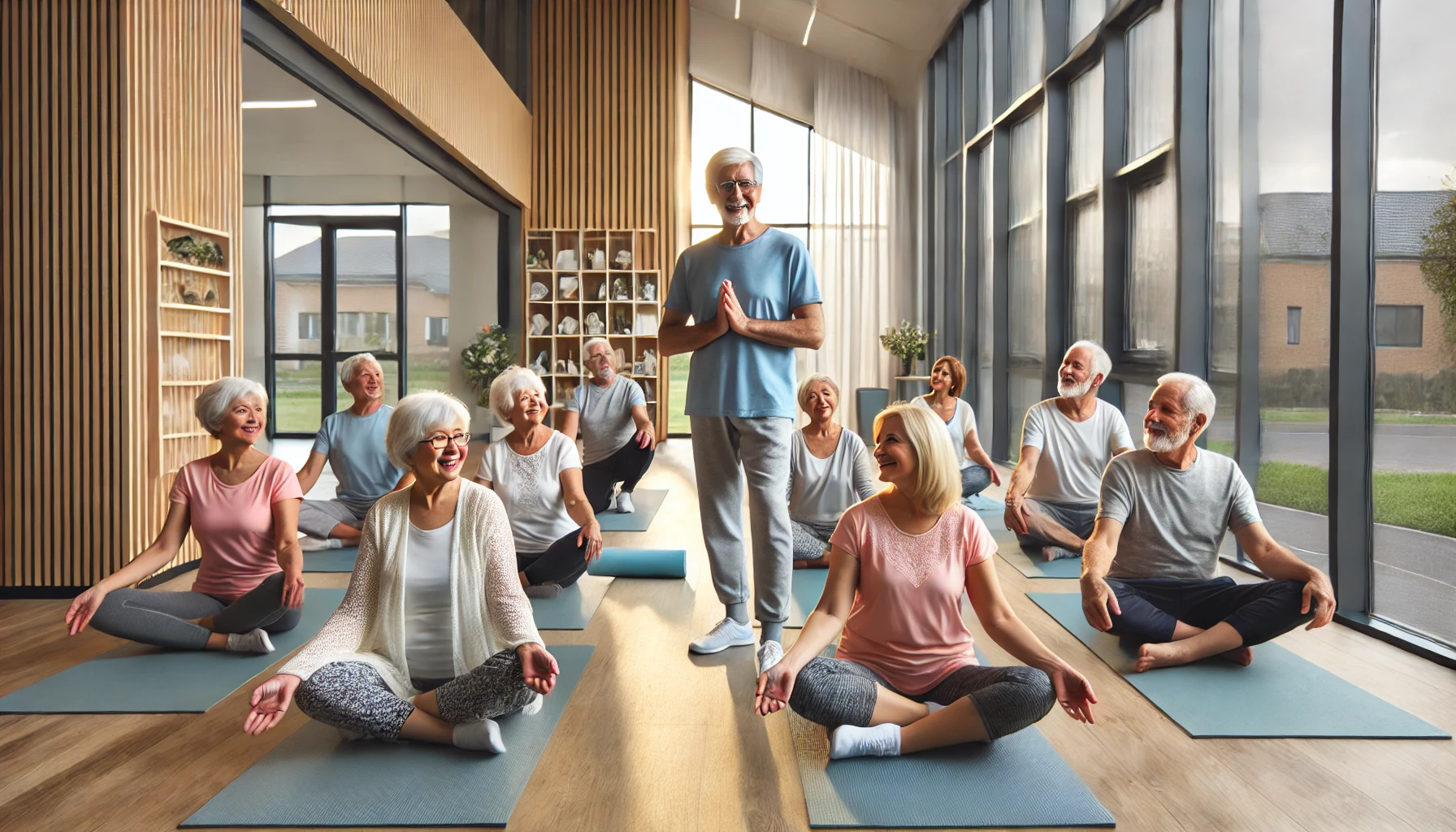As we age, we experience various changes in both our physical and emotional well-being. It’s important to recognize these changes and prepare for them in a positive, healthy way.
This guide will help you navigate the experience of growing older with the “My OLSD” approach, focusing on self-care, planning, and staying connected.
In this article, we’ll dive deep into the challenges and rewards of aging, providing you with actionable advice for a fulfilling life during your later years.
Physical Changes in Old Age
As we grow older, our bodies inevitably undergo changes that can affect our daily lives. These changes can range from mild discomfort to serious health conditions. Understanding these changes is crucial for managing your health and maintaining an active lifestyle.
Common Health Issues
- Arthritis: One of the most common ailments in older age, arthritis causes joint pain and stiffness, making movement difficult.
- Osteoporosis: Bone density decreases with age, which can increase the risk of fractures.
- Heart Disease: Older adults are at a higher risk for cardiovascular issues due to lifestyle factors and aging.
- Diabetes: Type 2 diabetes is common as we age, often linked to diet and physical activity.
Maintaining Physical Health
Staying physically active can help alleviate many of these issues. Here are some simple ways to stay healthy:
- Exercise regularly: Walking, swimming, or light strength training can help maintain mobility and bone density.
- Eat a balanced diet: Focus on whole grains, fruits, vegetables, lean proteins, and healthy fats.
- Stay hydrated: As you age, your body may not signal thirst as effectively, so it’s essential to drink plenty of water throughout the day.
- Routine check-ups: Regular visits to your doctor ensure early detection of potential health problems.
By taking care of your body, you can significantly improve your quality of life during old age.
Mental and Emotional Aspects

Aging isn’t just about physical changes; our minds and emotions also evolve. Understanding and managing these changes is essential for maintaining mental clarity and emotional well-being.
Cognitive Changes
Many older adults experience mild cognitive decline as they age. This might include forgetfulness or difficulty in multitasking. However, these changes are not necessarily a sign of serious conditions like dementia. It’s important to recognize the difference and seek professional advice if needed.
Mental Health Considerations
Older adults can be more prone to mental health issues such as depression and anxiety. This may be due to factors like isolation, the loss of loved ones, or health challenges. It’s vital to maintain a strong support system and engage in activities that promote mental well-being.
- Stay socially active: Regular interactions with family, friends, or community groups can help combat loneliness.
- Engage your brain: Reading, puzzles, or learning new hobbies can help keep your mind sharp.
- Seek professional help: Don’t hesitate to talk to a therapist or counselor if you feel overwhelmed.
Social and Lifestyle Factors
A fulfilling social life plays a crucial role in healthy aging. Staying connected with others and engaging in enjoyable activities can boost your mood and overall well-being.
Staying Connected
As we get older, it can become more challenging to stay socially engaged. However, staying connected with family, friends, or neighbors is essential for emotional health. Even regular phone calls or video chats can make a significant difference.
Engaging in Hobbies and Activities
Keeping yourself busy with hobbies can help pass the time meaningfully and improve your mental health. Whether it’s gardening, painting, or joining a local club, engaging in hobbies gives you something to look forward to.
- Try new things: Learning new skills, like playing an instrument or picking up a language, can be a rewarding experience.
- Volunteer: Giving back to the community not only helps others but also provides a sense of purpose.
Financial Planning for Retirement

One of the most significant concerns when entering old age is financial stability. Proper planning can help ensure you’re able to live comfortably and enjoy your retirement without worrying about money.
Saving and Budgeting
It’s never too early to start saving for retirement. If you’re still working, make sure you’re contributing to a pension or retirement account. If you’re already retired, review your savings and ensure you’re living within your means. Creating a budget can help you manage your expenses efficiently.
Managing Expenses
Once retired, it’s essential to keep track of your spending and adjust as needed. Cutting back on unnecessary expenses, like subscriptions or expensive hobbies, can ensure your savings last longer.
Healthcare and Medical Considerations
Healthcare becomes an even more significant concern as we age. Ensuring that you have access to the right care and staying on top of your health can prevent many common issues in old age.
Regular Check-ups
As part of “My OLSD,” it’s crucial to have routine medical check-ups. These visits help identify early signs of chronic conditions and allow your doctor to monitor your overall health.
Managing Chronic Conditions
If you have chronic conditions like diabetes or hypertension, it’s essential to follow your doctor’s advice on medication and lifestyle changes. Proper management of these conditions can reduce the risk of complications.
Legal and Estate Planning
Planning for your future and your family’s future is a significant part of growing older. Legal and estate planning ensures your wishes are met when you’re no longer able to manage them yourself.
Importance of Wills and Trusts
A will outlines how you want your assets distributed after your death. A trust can help manage your estate and avoid costly probate proceedings. Both are critical parts of your estate planning.
Power of Attorney
Designating a trusted person as your power of attorney ensures that your financial and medical decisions are handled according to your wishes if you become unable to make those decisions yourself.
Technology and Aging
Embracing technology can greatly enhance your life during old age. From staying connected to your family to managing your health, technology can make life easier.
Embracing New Technologies
Learning how to use smartphones, tablets, and computers can keep you connected to the world. There are also numerous apps available to help with managing medications, keeping track of appointments, or even exercising.
Online Safety Tips
With increased use of technology comes the need for better security. Here are a few tips to stay safe online:
- Use strong passwords: Avoid using easy-to-guess passwords like your name or birthdate.
- Beware of scams: Be cautious about unsolicited emails or phone calls.
- Stay updated: Keep your devices and apps updated to protect against security breaches.
Personal Stories and Experiences

Hearing about other people’s experiences can provide insight and inspiration for your journey through old age. Many people share their stories online or in books, offering advice, hope, and encouragement.
- Learn from others: Personal stories of resilience can give you ideas for coping with challenges.
- Share your journey: Consider writing down your experiences or sharing them with others to create a legacy of wisdom.
FAQs:
What is the best way to stay active in old age?
Regular walking, swimming, or light weight training can help maintain mobility and strength.
How can I prevent memory loss as I age?
Keeping your mind active with puzzles, reading, and learning new skills can help preserve memory.
What financial tips should I consider in my 60s?
Focus on saving as much as possible and cut back on unnecessary expenses. Consider consulting a financial advisor for tailored advice.
How can I manage loneliness in old age?
Stay connected with family and friends, join local clubs or online communities, and volunteer to meet new people.
What are some important legal documents to have in old age?
A will, power of attorney, and healthcare directive are essential to ensure your wishes are respected.
What are some ways to stay mentally sharp as I age?
Engage in activities like puzzles, reading, and learning new skills. Staying mentally active helps maintain cognitive function.
How can I ensure I’m eating a balanced diet as I get older?
Focus on nutrient-dense foods like fruits, vegetables, and lean proteins. Consider smaller meals throughout the day to support digestion.
What should I consider when choosing a retirement community or assisted living?
Look for factors like location, amenities, healthcare services, and the social environment. Visit in person to get a feel for the community.
How can I prepare for the emotional challenges of aging?
Stay connected with loved ones and seek counseling if needed. Maintaining a positive attitude helps manage the emotional impact of aging.
Are there any legal benefits or discounts available to older adults?
Many local programs offer discounts on transportation, taxes, and healthcare. Check with community centers or senior organizations for available benefits.
Conclusion:
Growing old is a natural part of life, and by embracing it with a positive mindset and practical planning, we can make the most of our golden years. From maintaining physical and mental health to planning your finances and estate, the “My OLSD” approach emphasizes the importance of self-care, connection, and preparation.
By staying informed and proactive, you can ensure that you live a fulfilling, joyful life throughout old age.
recommed article:
The Legacy Of Troy Moran At Hart High School – A Comprehensive Guide!
Pedrovazpaulo Business Consultant – A Comprehensive Guide To Excellence!
The Ultimate Guide To 47166566ln – Everything You Need To Know!




